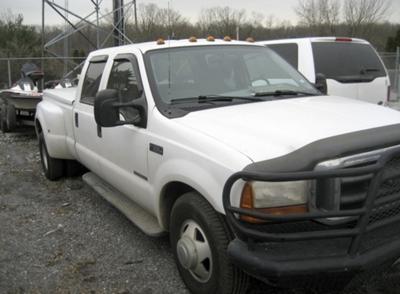Police who stop drug dealers and seize their assets have been trained to follow a script.
“It’s usually a weeklong training, very specialized,” said Trooper Adam Reed, coordinator of the Pennsylvania State Police Public Information Office. “The topics include finding hidden compartments, specific search and seizure laws as they apply to Pennsylvania and other methods to identify different criminal indicators,” or red flags that might alert police that a driver is transporting drugs.
In a case pending before the U.S. Court of Appeals for the Third Circuit, Pennsylvania State Trooper Justin Hope — who has been involved in dozens of stops and seizures in Lancaster County — articulated why he thought a black SUV he spotted on the Turnpike near Valley Forge in 2011 might be carrying drugs:
“(1) the driver did not look at him when he passed even though Hope had looked directly at the driver, and it was common for drivers to look at him when his car was parked in the spot it was in; (2) the driver’s hands were in the “10-and-2 position” on the steering wheel, which Hope explained is intended to convey safe driving to a police officer and is contrary to the driving habits of most drivers; (3) two people were in the vehicle, which is common amongst drug traffickers transporting narcotics; (4) it was mid-Friday morning, which was significant because the majority of the public works during that time period; (5) an SUV was being driven,which is the most common vehicle used to transport large amounts of drugs; (6) the SUV was an out-of-state rental vehicle, and rental vehicles are often used by drug traffickers; and (7) the SUV was being driven from Philadelphia, a source city for illegal narcotics.”
There were indeed drugs in the vehicle, and the driver, Rodney Frierson, was convicted of drug offenses in 2013. But the federal defenders now appealing his conviction argue in court papers that the factors cited by Hope can make almost any driver seem “suspiciously normal.”
Suspicion alone isn’t enough to pull someone over, but it often prompts a trooper to tail a vehicle and pull it over if he spots an infraction.
Criminal proceedings and narratives contained in the forfeiture petitions filed by the commonwealth asking to keep money seized during a stop describe very similar scenarios unfolding from there.
The stop proceeds as any other might. But if the troopers think they smell something funny, if the driver seems unusually nervous or has more than one cell phone — more red flags — troopers may summon the driver to the cruiser, write a citation for the original infraction and tell the driver he or she is free to go.
Then they’ll ask: Do you mind if we ask you a few more questions?
Wray termed this “re-engagement,” noting the red flags may still not be enough to constitute “reasonable suspicion” — so police can’t hold a driver unless there's another basis for reasonable suspicion.
But if the driver voluntarily agrees to answer the additional questions, the ensuing interaction is legally deemed a “mere encounter,” distinctly different from an “investigative detention.”
But the former can quickly turn into the latter.
Troopers may ask: Do you have anything illegal in the car? If the driver says “no,” troopers may ask to search it.
If the driver won’t consent, troopers can bring in drug-sniffing dogs. If the dogs “hit” on something, it constitutes “reasonable suspicion” — and the vehicle can be searched. If drugs are discovered, the driver can be arrested, any cash seized and ultimately forfeited to the commonwealth.
The scripted approach, said David Harris, a constitutional law scholar at the University of Pittsburgh, “is constitutional, as in, just inside the lines drawn by the Supreme Court.
“And it is pushing every advantage the Supreme Court has given law enforcement.”




